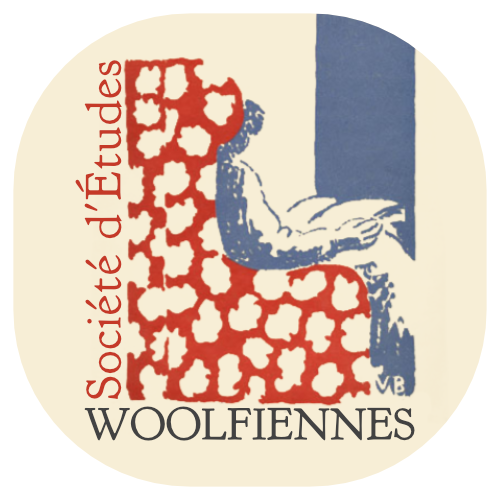Modernism and Matter
Université Paul-Valéry Montpellier3, 13-14 October 2022
An International workshop organised by EMMA (Université Paul-Valéry Montpellier3)
In collaboration with CIRPaLL (Université d’Angers)
This workshop on modernism and matter is an incentive to interrogate the meaning of matter, and investigate its power in modernist literature. Our assumption is that modernist writings can help us answer the call for ‘more complex understandings of materiality’ (Alaimo).
A hundred years after the so-called annus mirabilis of modernist literature, such a reappraisal of modernism should be appropriate. Over the last few years, revaluations of modernism or modernisms have been many, from Stephen Ross and Allana Lindgren’s The Modernist World (2017) and Douglas Mao’s New Modernist Studies (2021) to Jean-Michel Rabaté and Angeliki Spiropoulou’s recent anthology Historical Modernisms: Time, History and Modernist Aesthetics (2022). The focus has gradually shifted from canonical writers such as James Joyce, T.S. Eliot or Virginia Woolf to relatively neglected figures like Dorothy Richardson or Rebecca West and to lesser-known writers usually not labelled as modernists, as in Lynne Hapgood’s and Nancy L. Paxton’s Outside Modernism (2000). In order to embrace the rainbow-like nature of modernism, diverse methods – historical, literary or philosophical – and theories have been implemented, and archival research often favoured. Modernism has nevertheless remained associated with experimentation (as underlined by Rabaté and Spiropoulou), the quest for the self and urban modernity, a vision that was promoted by the modernists themselves, as is well-known.
Only recently have critics begun to alter this image of modernism by drawing attention to the ecological sensibility that manifests within its bounds. In his seminal Green Modernism (2015), Jeffrey Mathes McCarthy stated that ‘Until recently, modernist studies has largely rebuffed the insights of ecocriticism thanks to the aesthetic armor of its autonomous, subjective, urban texts’, and he proceeded to analyse Joseph Conrad, Ford Madox Ford and D.H. Lawrence in that new light. Kelly Sultzbach (2016), Andrew Kalaidjian (2020), Michael Rubenstein and Justin Neuman (2020) have each in their own way extended these reflections.
Building on this recent work on modernist ecologies and in a similar attempt at renewing our understanding of modernism – and possibly, tease out some of its contradictions, we would like to draw attention to the specific connections between modernism and materiality. Indeed, modernist writers were not only interested in the materiality of the books which they produced, but also in matter. The ‘prosaic’ concerns of the preceding generation were rejected – Wells, Bennett and Galsworthy being labelled as ‘materialists’ by Virginia Woolf, because they wrote of ‘unimportant things’ – while the centrality of matter itself was reaffirmed in new and original ways, with Woolf herself devoting a short story to ‘Solid Objects’ and comparing impressions with atoms in her essay ‘Modern Fiction’.
Far from being inert, matter is considered as being alive and vibrant not only by biologists or physicists but also by philosophers such as Henri Bergson and Gilles Deleuze, and theorists such as Jane Bennett or Bruno Latour. What qualifies as matter for the writers of the modernist era? How do they define matter and represent it? How does it relate to the self they were so intimate with? How does the Modernists’ conception of matter resonate with the contemporary scientists’? How do the ways they represent matter, materiality or material environments resemble or depart from those that characterize the Romantic and Victorian periods?
In order to address these questions, theories that embrace the ‘insights of ecocriticism’ or cut across those of New Materialism may be resorted to (although not exclusively); they will help to explore the plural form and plasticity of matter together with the connections between the material and the psychological, the organic and the inorganic, matter and consumerism, matter and materialism, matter and myth, materiality, physicality, animism and mysticism, to give but a few examples. Such an approach should shed a new light on modernist literature, its canonical and non-canonical figures, and the aesthetic, ethical, ontological or political role and power of matter.
Please send a 300-word abstract with a short biographical note to Christine Reynier (christine.reynier@univ-montp3.fr) and Xavier Le Brun (xavier.lebrun@univ-angers.fr)
Deadline for submissions: 1 June 2022
Notification of acceptance: 30 June 2022
A selection of peer-reviewed papers will be published in the series Horizons Anglophones/Present Perfect, PULM: https://www.pulm.fr/index.php/collections/horizons-anglophones/present-perfect.html
Select bibliography
Alaimo, Stacy, Bodily Natures. Science, Environment, and the Material Self, Indiana University Press, 2010.
Diaper, Jeremy, ‘Modernism and the Environment’, Modernist Cultures 16.1 (2021): 1–11. DOI: 10.3366/mod.2021.0317
Hapgood, Lynne and Nancy L. Paxton, Outside Modernism, Palgrave Macmillan, 2000.
Kalaidjian, Andrew, Exhausted Ecologies: Modernism and Environmental Recovery, Cambridge University Press, 2020.
Mao, Douglas, New Modernist Studies, Cambridge University Press, 2021.
Rabaté, Jean-Michel and Angeliki Spiropoulou, Historical Modernisms: Time, History and Modernism Aesthetics,Bloomsbury, 2022.
Ross, Stephen and Allana Lindgren, The Modernist World, Routledge, 2017.
Rubenstein, Michael and Justin Neuman, Modernism and its Environments, Bloomsbury, 2020.
Ryan, Derek. Virginia Woolf and the Materiality of Theory: Sex, Animal, Life, Edinburgh University Press, 2013.
Sultzbach, Kelly, Ecocriticism in the Modernist Imagination: Forster, Woolf and Auden, Cambridge University Press, 2016.
Scientific committee
Dr. Nicolas Boileau, Aix-Marseille Université, France
Pr. Rossana Bonadei, University of Bergamo, Italy
Dr. Elke D’hoker, KU Leuven, Belgium
Pr. Christine Froula, Northwestern University, USA
Pr. Jean-Michel Ganteau, Université Paul-Valéry Montpellier3, France
Dr. Xavier Le Brun, Université d’Angers, France
Pr. Caroline Patey, University of Milan, Italy
Pr. Frédéric Regard, Sorbonne Université, France
Pr. Christine Reynier, Université Paul-Valéry Montpellier3, France
Pr. Stephen Ross, University of Victoria, BC, Canada
Organising committee
Marie Bertrand, Université Paul-Valéry Montpellier3, France
Alice Borrego, Université Paul-Valéry Montpellier3, France
Tim Gupwell, Université Paul-Valéry Montpellier3, France
Clémence Laburthe-Tolra, Université Paul-Valéry Montpellier3, France
Xavier Le Brun, Université d’Angers, France
Christine Reynier, Université Paul-Valéry Montpellier3, France
